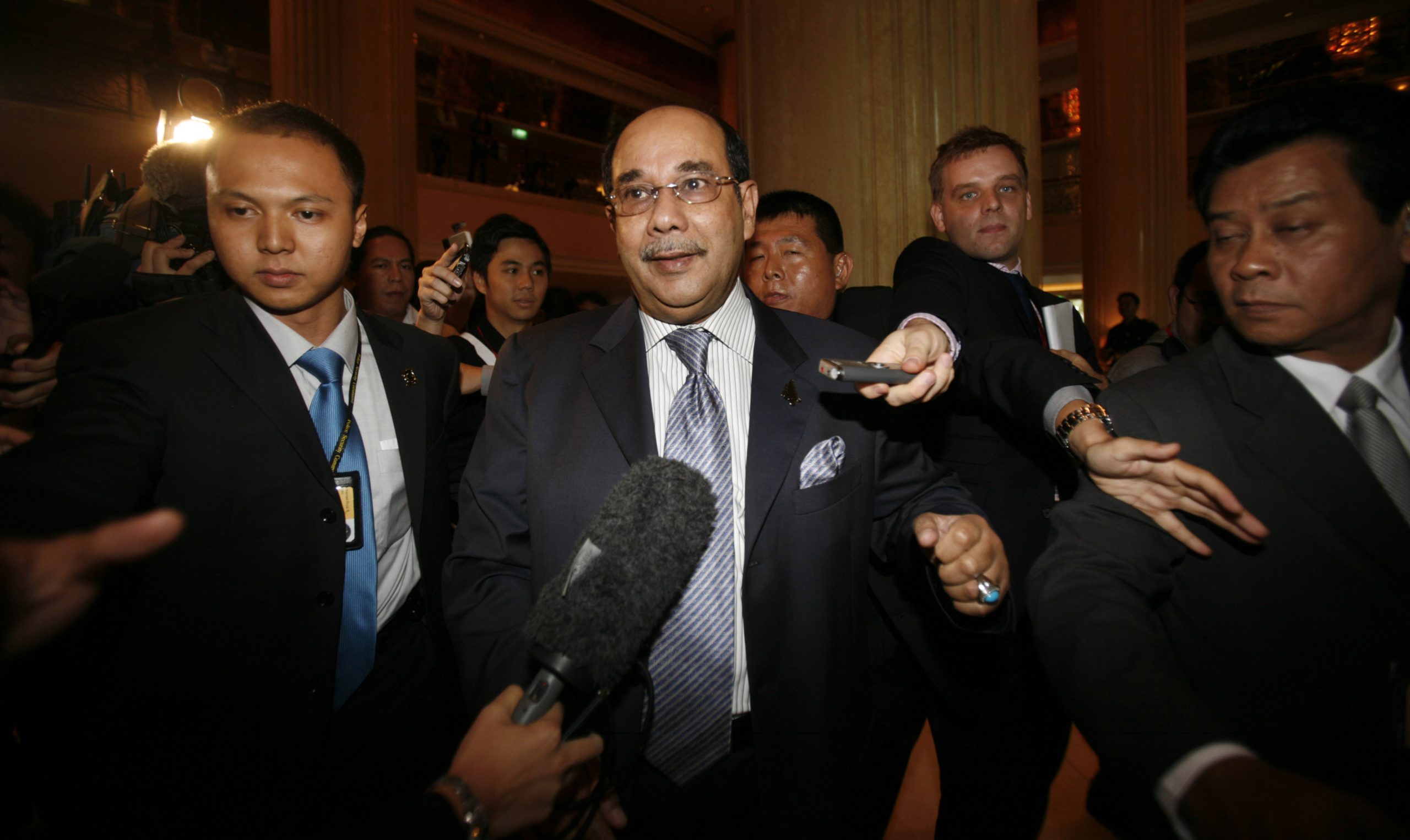The United Nations should intervene in Arakan State to stop further escalation of violence against Rohingya Muslims and avoid another genocide like in Cambodia and Rwanda, said the Organisation of Islamic Cooperation’s special envoy to Burma.
The conflict, which has left at least 86 dead and an estimated 66,000 people fleeing into Bangladesh since it started on 9 October, is no longer an internal issue but of international concern, said Syed Hamid Albar, Organisation of Islamic Cooperation (OIC) special envoy to Burma.
Syed said the OIC should seek UN intervention. His comments come ahead of a special OIC meeting called by Malaysia on Thursday to discuss measures to deal with the conflict affecting the Rohingya minority, who are predominantly Muslim.
“We don’t want to see another genocide like in Cambodia or Rwanda,” Syed told Reuters in an interview ahead of the meeting in Kuala Lumpur.
“The international community just observed, and how many people died? We have lessons from the past, for us to learn from and see what we can do,” he said.
The OIC represents 57 states and acts as the collective voice of the Muslim world.
Refugees, residents and human rights groups say Burmese soldiers have committed summary executions, raped Rohingya women and burned homes since military operations started in the north of Arakan State on 9 October.
The government of predominantly Buddhist Burma, led by Nobel Peace Prize winner Aung San Suu Kyi, has denied the accusations, saying many of the reports are fabricated, and it insists the strife in Arakan State, where many Rohingya live, is an internal matter.
The military operations were in response to attacks on security posts near Burma’s border with Bangladesh that killed nine police officers. The Burmese government has said that militants with overseas Islamist links were responsible.
A Burmese government spokesman said it will not attend the OIC meet as it is not an Islamic country, but that it had already made its actions clear to ASEAN members at their last meeting in December, and that UN intervention would only end up facing “unwanted resistance from local people.”
“So that’s why the international community should have a positive approach and understand widely our country’s conflict situation,” said Zaw Htay, a spokesman for the office of Burma’s President Htin Kyaw.
About 56,000 Rohingya now live in Muslim-majority Malaysia having fled previous unrest in Burma.
Malaysia, which is Southeast Asia’s third-largest economy, broke the tradition of non-intervention by members of the regional bloc by speaking out on the conflict, calling on the 10-member grouping to coordinate humanitarian aid and investigate alleged atrocities committed against the ethnic group.
Zaw Htay criticised Malaysia for its outspoken position on the conflict, saying the country should manage “its own political crisis” and “avoid encouraging extremism and violence” in Burma.
“Our new government is working seriously and carefully on the situation in Rakhine [Arakan]. We are working on a very complicated and tough problem with this internal conflict, so we need time to prevent it happening again,” Zaw Htay said.
Meanwhile, the Indonesian Foreign Ministry on Wednesday issued a plan to provide training for the Burmese police in Arakan State to help the Rohingya community.
In a press briefing for the OIC meeting on Thursday, Foreign Ministry spokesman Armanatha Nasir conveyed Indonesia’s intended contributions to the meeting.
“The primary message Indonesia will bring to the meeting is to urge the OIC to take constructive actions in supporting Myanmar’s effort to work toward a [peaceful] solution in Rakhine State,” Nasir said.
Indonesia, he added, does not only intend to help in terms of humanitarian needs, but also in terms of education, health and other prioritised aspects.
[related]
“One thing I’d like to add is aid in capacity-building for Myanmar police, as one of the biggest issues here is to educate the police on how they should engage citizens while taking human rights into consideration,” he added.
Indonesia is one of the destinations Rohingya refugees have fled to over the past few years since the conflict began almost four years ago.
In 2015, more than 3,000 migrants landed in Indonesia, Malaysia and Thailand, who refused to provide asylum despite appeals from the United Nations to do so. Both Indonesia and Malaysia have since agreed to and urged the international community to contribute in a solution.



